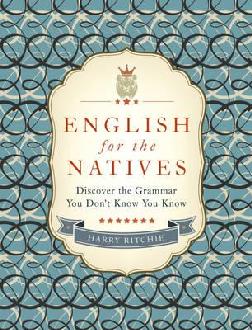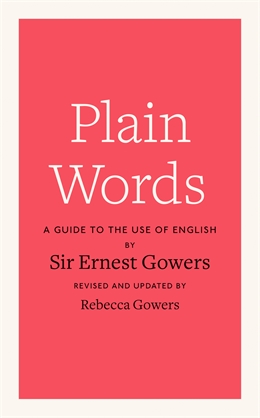- HOME
- INTRO TO THE FORUM
- USE AND MISUSE
- BADLY WRITTEN, BADLY SPOKEN
- GETTING
TO KNOW ENGLISH - PREPARING FOR ENGLISH PROFICIENCY TESTS
- GOING DEEPER INTO ENGLISH
- YOU ASKED ME THIS QUESTION
- ADVOCACIES
- EDUCATION AND TEACHING FORUM
- ADVICE AND DISSENT
- MY MEDIA ENGLISH WATCH
- STUDENTS' SOUNDING BOARD
- LANGUAGE HUMOR AT ITS FINEST
- THE LOUNGE
- NOTABLE WORKS BY OUR VERY OWN
- ESSAYS BY JOSE CARILLO
- Long Noun Forms Make Sentences Exasperatingly Difficult To Grasp
- Good Conversationalists Phrase Their Tag Questions With Finesse
- The Pronoun “None” Can Mean Either “Not One” Or “Not Any”
- A Rather Curious State Of Affairs In The Grammar Of “Do”-Questions
- Why I Consistently Use The Serial Comma
- Misuse Of “Lie” And “Lay” Punctures Many Writers’ Command Of English
- ABOUT JOSE CARILLO
- READINGS ABOUT LANGUAGE
- TIME OUT FROM ENGLISH GRAMMAR
- NEWS AND COMMENTARY
- BOOKSHOP
- ARCHIVES
Click here to recommend us!
READINGS IN LANGUAGE
This section features links to interesting, instructive, or thought-provoking readings about the English language and related disciplines. The selections could be anywhere from light and humorous to serious and scholarly, and they range widely from the reading, writing, listening, and speaking disciplines to the teaching and learning of English.
Most likely, English won’t have a gender-neutral pronoun forever
Will English forever be without a gender-neutral pronoun that can obviate the use of “he/him/his/himself” or “she/her/her/herself” when the gender of the antecedent noun is unspecified or unknown—as in, say, “The sales supervisor scolded himself/herself for failing to meet his/her annual quota”?
In “A Gender-Neutral Pronoun Won’t Work in English. We’re Stuck With ‘She’, and ‘He’,” an article that he wrote for the January 24, 2014 issue of The New Republic, American linguist and political commentator John McWhorter argues that despite the most enlightened of intentions, inventing such a pronoun would be “a waste of energy.” He observed: “Make no mistake: the current situation is lousy. The grand old idea was that ‘he’ could stand for both women and men, but it never made much sense (‘Sally prided himself on his penmanship’?), and studies prove what we all know: that ‘he’ is readily interpreted as male.”
McWhorter points out that previous creative attempts to come up with a brand new pronoun that does the job of both “he” and “she” have all come to naught: “Such as ‘hesh’—‘he’ plus ‘she’—or a 1970s attempt, ‘co’. The latest attempt is ‘ze’, proposed by LGBT people who seek a pronoun that doesn’t shore up conventional assumptions of gender identity… ‘Ze’ is a great idea in itself, but that it is too easily confusable with ‘he’ in casual speech—The problem is ‘ze’ doesn’t live close enough—is only the beginning of the problem. ‘Ze’, like ‘co’, ‘hesh’ and ‘thon’ (from ‘that one’, a nineteenth-century attempt), can’t truly catch on.”
Considering all these futile efforts, McWhorter concedes that the only thing that can actually be done about the gendered pronoun problem has already been done—using “they” as a singular, as in “Tell each student where they can hand in their paper”—but he points out that singular “they” is useful only in small doses. He adds: “Sooner or later you have to either start jumping through the circumlocutionary hoops of the kind Strunk & White liked, or more likely, give away the game and call it a ‘he’ or a ‘she’.”
Read John McWhorter’s “A Gender-Neutral Pronoun Won’t Work in English” in The New Republic now!
OTHER INTERESTING READINGS:

CREDIT: FROM ECONOMIST.COM
Two equally valid perspectives. In “Dialect versus language: By their fruits ye shall know them,” an opinion column in the February 26, 2014 issue of Economist.com, Berlin-based commentator R.L.G. had previously weighed in on the question “How a dialect differs from a language” by taking the position that mutual intelligibility is the most important criterion for language experts: “On these grounds, for example, Cantonese and Mandarin are two languages, not two dialects of a single language called Chinese.” There were so many passionate objections to this view, however, prompting R.L.G to concede that the two perspectives on this issue actually use different criteria—both valid—as to what qualifies as being a language. “It’s like when you get biologists arguing with chefs about what the difference between a fruit and a vegetable REALLY is,” R.L.G. explains. “Try offering your child ‘a piece of fruit,’ and then when he accepts, handing him a chili pepper. The specialists’ definition is not the only one that matters, as any good specialist knows.”
Read R.L.G’s “Dialect versus language: By their fruits ye shall know them” in Economist.com now!
Two unsustainable positions. In “The battle for the English language,” a review of three recently published English grammar and usage books in the February 20, 2014 issue of ProspectMagazine.co.uk, Stefan Collini, professor of English at Cambridge University, frowns on the customary labeling of those who write about grammar and usage as either prescriptivists or descriptivists. “The former think there are ‘right’ and ‘wrong’ ways to say or write,” he observes, “while the latter claim that we can only record how people actually use language, since any widespread successful usage is, ipso facto, ‘right.’ But as soon as we probe a little further, these two categories start to dissolve… In reality, neither of these positions is sustainable in its pure form. Those who think anything goes and those who think that that means it goes to the dogs turn out to be not so far apart after all.”
Reviewed by Prof. Collini were the following books: English for the Natives by Harry Ritchie; Plain Words: A Guide to the Use of English by Ernest Gowers and Rebecca Gowers; and For Who the Bell Tolls by David Marsh.


Read Stefan Collini’s “The battle for the English language” in ProspectMagazine.co.uk now!
Click to read comments or post a comment
View the complete list of postings in this section
(requires registration to post)





